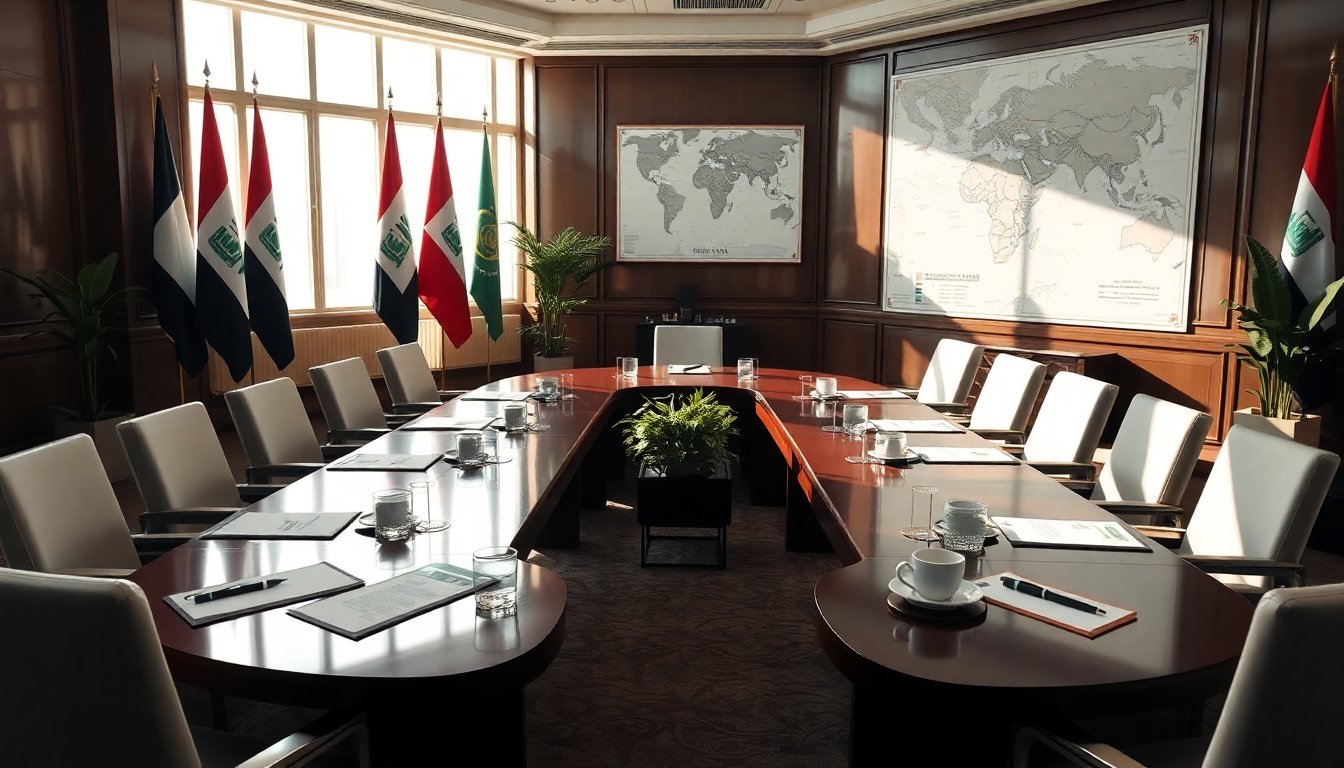Table of Contents
In a significant diplomatic move, representatives from the United States, Israel, Hamas, and several key Middle Eastern nations are scheduled to convene in Egypt. This meeting aims to initiate discussions surrounding the ongoing conflict in Gaza, which has caused immense humanitarian strife and geopolitical tension.
The urgency of these talks cannot be overstated. Senator Marco Rubio emphasized the necessity of patience, indicating that resolving the Gaza conflict will not be a swift process. He noted that the complexities and historical grievances involved require a thoughtful approach, underscoring that peace cannot be achieved overnight.
Key players in the negotiations
As these discussions unfold, it is essential to recognize the variety of actors involved. The United States has been a longstanding ally of Israel and plays a crucial role in mediating peace efforts in the region. Israel, facing security concerns, has a vested interest in the outcomes of these negotiations, while Hamas, which governs Gaza, seeks to address its own political goals and the needs of the Palestinian people.
The role of regional countries
Countries in the Middle East, such as Egypt and Jordan, are also integral to these talks. Their geographic proximity and historic ties to both Israel and Palestine position them as vital stakeholders. Egypt, hosting the negotiations, has previously facilitated peace talks and has a unique ability to influence the parties involved. The cooperation of these nations is crucial, as they can help bridge gaps and foster dialogue.
Challenges to achieving lasting peace
Despite the optimistic outlook surrounding the meeting, the road to peace is fraught with challenges. Historical animosities between the parties, differing political ideologies, and the humanitarian crisis in Gaza complicate the landscape. Rubio pointed out that both sides must be willing to make concessions and engage in constructive dialogue if any progress is to be made.
Moreover, the current humanitarian situation in Gaza cannot be ignored. With infrastructure devastated and populations displaced, there is an urgent need for humanitarian aid and reconstruction efforts. The involvement of international organizations may be necessary to facilitate this aid, emphasizing the need for a coordinated approach to address immediate human needs alongside political discussions.
Building a framework for peace
To establish a sustainable peace framework, the negotiations must address not only the immediate cessation of hostilities but also the underlying issues that perpetuate the conflict. These include territorial disputes, security arrangements, and the right of return for refugees. Each of these elements must be approached delicately, as they invoke deep-seated emotions and historical grievances.
Furthermore, the success of the negotiations will depend on the willingness of both Hamas and Israel to engage in mutual recognition. This recognition is crucial for fostering trust and establishing a foundation for future cooperation. Rubio’s comments reflect a broader understanding that achieving peace in this region requires more than just an agreement; it necessitates a transformation in relations between all parties involved.
The path ahead
As the delegations prepare to meet in Egypt, the international community watches closely. The outcomes of these discussions could set a precedent for future negotiations and influence the geopolitical dynamics of the Middle East. While the timeline for resolution remains uncertain, the commitment to dialogue represents a crucial step forward.
While the road to ending the Gaza conflict may be long and winding, the upcoming talks in Egypt signify a glimmer of hope. With key players coming together, there is potential for meaningful dialogue that could pave the way for lasting peace in the region. The world now awaits the results of these critical negotiations, hoping for a positive turn in a conflict that has persisted for far too long.


